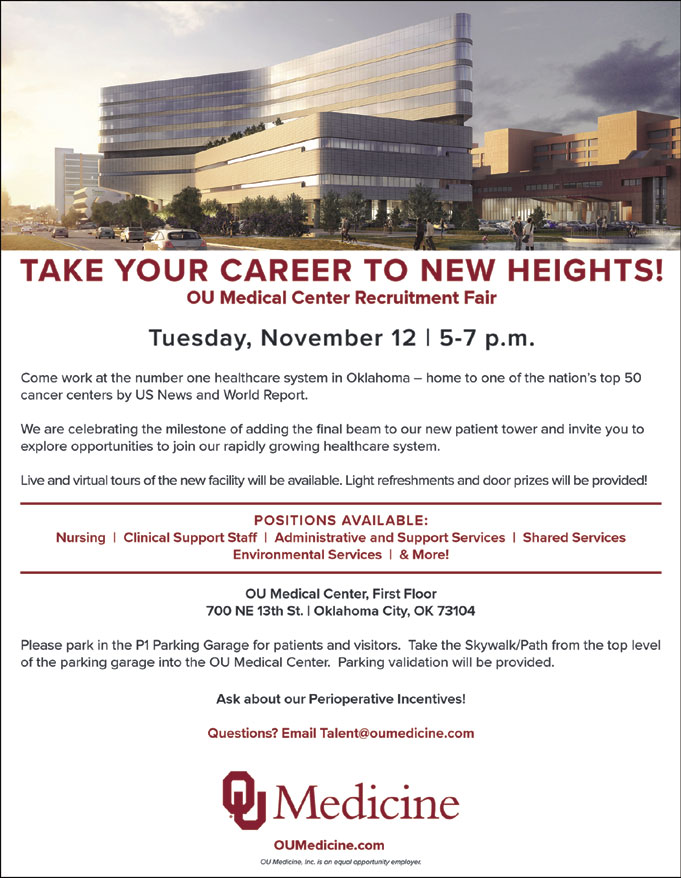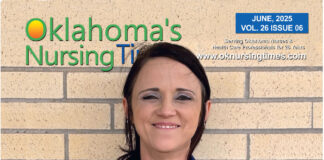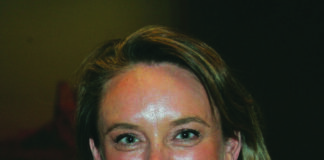by Pati Pryor Huffman, MS, RN, CNE – Assistant Professor, Fran and Earl Ziegler College of Nursing and Mark J. Fisher, PhD, RN – Assistant Professor, Fran and Earl Ziegler College of Nursing.
An exciting and often challenging educational process starts with one’s decision to become a nurse. Traditional work tasks, goal achievement, and success take on a different context when moving from the everyday work world to the nursing profession. Work of nurses involves interventions and interactions between human beings. Goal achievement is measured in terms a person’s health and wellness. Success in the nursing profession is a life saved, health or wellness restored, or compassion experienced. The decision of becoming a nurse signals the beginning of a transformation that starts with an educational process. A transition takes place from general education courses including English, math, and general sciences to courses that create another layer of complexity. Competence in nursing develops through and emerges from an extensive experiential process involving coursework and clinical experiences targeted to ensure accuracy, consistency, and reliability. Interactions between human beings, complexities involved in health and wellness, and an ever-changing health care environment demands one to go through professional development. Yet, how students go through this professional transformation and what is available to facilitate this evolution are not always clear or known. The purpose of this article is to highlight an innovative course used to assist students with the nursing profession transition and to emphasize the integral role communication plays in the nursing profession.
Students entering a baccalaureate-nursing program predictably have minimal knowledge of what a profession is and what it means to be a professional. Required skills, specific knowledge, and attitudes guiding the profession of nursing are not always innate necessitating focused education and training. Fortunately, students at a four-year university interested in the nursing profession have the opportunity to participate in an innovative course designed to introduce students to the profession of nursing. Professional behavior, knowledge of one’s own behaviors, and self-reflection among others serve as course objectives. Introduction to the profession of nursing and the many roles nurses can serve in healthcare at the local, regional, national, and global levels provide learners with a context of the profession. Students discuss ethics, economics, community health care, leadership, critical thinking, and stress management in an effort to provide them with a real perspective of what nursing is and what it means to be a professional nurse. Weekly sessions typically begin with a brief content presentation, followed by open group discussions, and review of written work on specific course topics and their influence on the nursing profession. At the end of the semester, students complete formal presentations reflecting knowledge and understanding gained about the nursing profession and the professional nursing role. A crucial component in the nursing profession identified early in the course and highlighted throughout semester is health care communication.
Communication is essential in professional nursing and plays a central role throughout one’s transition in becoming a professional nurse. In the “Communication in Health Care” module, students complete a brief reading assignment addressing health care communication from a patient’s perspective (Engel, 2010), watch a brief emotion-filled video addressing health care communication from a parent’s perspective (King, 2009), and complete a one-page response-paper focused on communication facilitators and reflection on the reading/video. Students pair-up and review their responses ultimately leading to an all-class discussion. A nurse researcher who is conducts health care communication research (second author) provides additional content and facilitates class discussion. Included in the discussion are communication influences, the role communication plays in family-centered care, and nurse communication as a part of Hospital Consumer Assessment of Healthcare Providers and Systems (HCAHPS). Students complete a brief reflection using a one-minute paper (Fisher, 2006) at the end of the one-hour session. Students identify useful suggestions from the module; their plan on how suggestions will be used when communicating as a nursing student, and what their “take away” was from the session. Students consistently identify the importance of listening, empathy, and respect as recommended components in high quality health care communication. Students leave with a greater appreciation of the integral role communication plays in the nursing profession.
Transition from general education to becoming a professional nurse is not easy and requires specific knowledge and skills that are not part of a general or non-professional education. This course intends to facilitate students’ transition into the profession of nursing while highlighting the role communication plays in health care. Although the transition process can be complex, content in this course and instructional methods used assist individuals in making this cognitive and behavioral shift with greater ease.
References:
Engel, M. (2010). I’m Here. Orlando, Florida: Phillips Press.
Fisher, M.J. (2006). One-minute paper. Journal of Nursing Education. 45(7), pp. 287-288.
King, S. (2009). Josie’s Story. New York: Atlantic Monthly Press.
Pati Pryor Huffman, RN, MS, CNE is an Assistant Professor with the Fran and Earl Ziegler College of Nursing at the University of Oklahoma Health Sciences Center. She has been a nurse for 40+ years and a nurse educator for 30+ years. This experience guides her pre-nursing program activity.
Mark J. Fisher, PhD, RN is an Assistant Professor with the Fran and Earl Ziegler College of Nursing at the University of Oklahoma Health Sciences Center. He has over 17 years nursing and interdisciplinary education experience. His research focuses on communication between parents of children with chronic illnesses and providers.
TAKE YOUR CAREER TO NEW HEIGHTS!
OU Medical Center Recruitment Fair
Tuesday, November 12 | 5-7 p.m.
Come work at the number one healthcare system in Oklahoma – home to one of the nation’s top 50 cancer centers by US News and World Report.
We are celebrating the milestone of adding the final beam to our new patient tower and invite you to explore opportunities
to join our rapidly growing healthcare system.
Live and virtual tours of the new facility will be available. Light refreshments and door prizes will be provided!
POSITIONS AVAILABLE:
Nursing | Clinical Support Staff | Administrative and Support Services | Shared Services | Environmental Services | & More!
OU Medical Center, First Floor
700 NE 13th St. | Oklahoma City, OK 73104
Please park in the P1 Parking Garage for patients and visitors. Take the Skywalk/Path from the top level of the parking garage into the OU Medical Center. Parking validation will be provided.
Ask about our Perioperative Incentives!
Questions? Email [email protected]
One of the things worth mentioning http://www.aipa.com.au/cialis-online/– do not use it if you are on nitrates (f.e. nitroglycerin). It will cause serious drop on blood pressure, and this might result in a heart attack or lost of consciousness. If following the dose indicated, will avoid this and other possible side effects that appear upon overdosing as prolonged erection and vision or hear loss.
OUMedicine.com
OU Medicine, Inc. is an equal opportunity employer.














